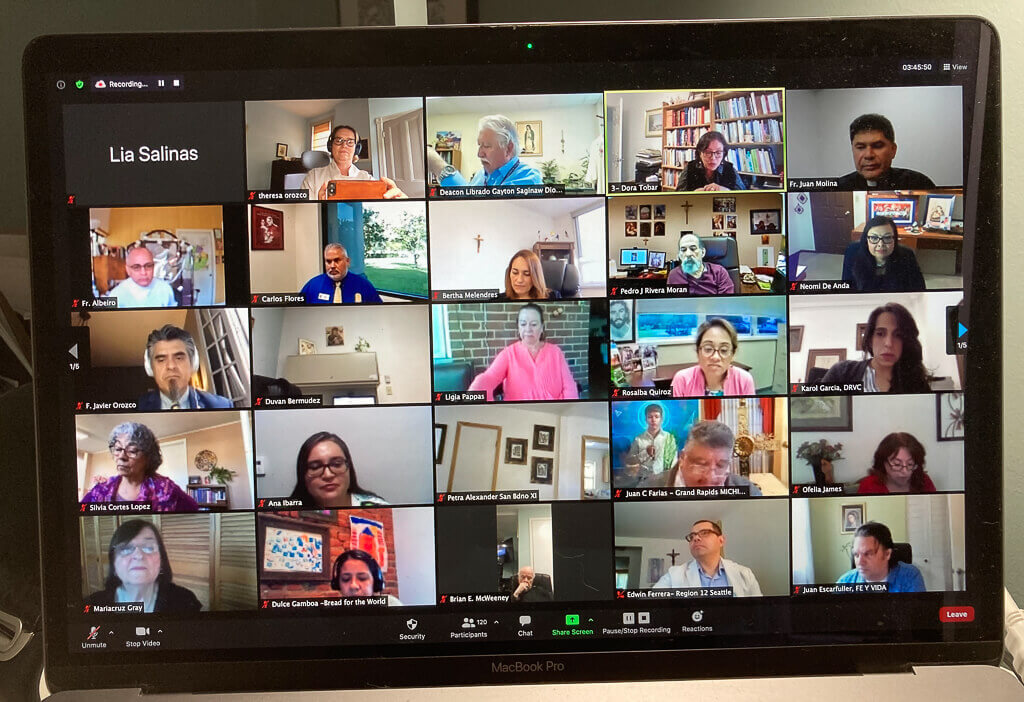
Our culture is saturated by commercial interactions and exchanges. It’s easy to relate to everything and everyone as a series of superficial connections or transactions. Indeed, everything in our lives seems tied to this impersonal way of experiencing our world. Food, entertainment, social interactions, friendships and work dynamics often depend on our ability to connect in transactional and anonymous ways.
Technological and digital resources maximize our transactional interactions and expand our anonymous connections to things and people. With the touch of a few buttons, we transport ourselves to a myriad of physically-detached encounters and material resources. And, in matter of seconds, we virtually connect to and interact with different cultures, diverse places and information that would normally be out of our immediate reach.
Yet, while these virtual connections and digital advancements enhance different aspects of our personal, professional and social lives, they also leave us feeling isolated and wanting more out of our human interactions and encounters. We know that no amount of virtual or digital friends can really replace the overall grace, challenge and beauty found in cultivating new personal friendships. As Pope Francis notes in his encyclical, “Fratelli Tutti,” “Digital relationships, which do not demand the slow and gradual cultivation of friendships, stable interaction or the building of a consensus that matures over time, have the appearance of sociability” (“Fratelli Tutti,” 42).
Similarly, our intellectual interests and spiritual pursuits require more than what the digital culture offers. We know from personal experiences with others, especially from being with friends and family, that we are created for more than digital encounters and self-serving, transactional moments. Far from being illusory, communion and friendship with others shows that our deepest intellectual and spiritual longings are often fed by recognizing each other’s joys, griefs and hopes. In faith, we are encouraged to seek and appreciate each other in more meaningful and personal ways. “Be joyful in hope, persevere in hardship; keep praying regularly; share with any of God’s holy people who are in need; look for opportunities to be hospitable … Rejoice with others when they rejoice, and be sad with those in sorrow (Romans 12:13;15).
This joyful hope and suffering, that we are encouraged to embrace with and for others, demands that we intentionally let go of our own needs and comforts so as to be credible witnesses of Christ’s message of inclusion and salvation (Colossians 1:24-25). In a time when we may be tempted to exclude others because of their particular social location or status in life, the example and words of St. Paul remind us of our vocation to care for each other with the right focus in mind and heart: “It is Christ among you, your hope of glory: this is the Christ we are proclaiming, admonishing and instructing everyone in all wisdom, to make everyone perfect in Christ…And it is for this reason that I labor, striving with his energy which work in me mightily” (Colossians 1:27-29).
Like the many holy men and women that have gone before us, we are invited to recognize each other in Christ with humility and charity. “I say this to every one of you: never pride yourself on being better than you really are, but think of yourself dispassionately, recognizing that God has given to each one his measure of faith” (Romans 12:3). From this place of mutual encounter, relationality, vulnerability and giftedness, others will recognize the measure of our love, hope and faith in Christ.
First published October 15, 2020 in the St. Louis Review
